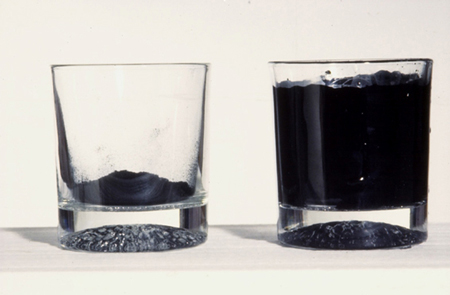Summary
Definition
History and exam
Key diagnostic factors
- presença de fatores de risco
- agitação, irracionalidade, inquietação, comportamento agressivo ocasional
- hipertermia >38 °C (>100 °F) mas <39.5 °C (<103 °F)
- hipertermia >39.5 °C (>103 °F)
- convulsões
- diaforese, rubor facial
- taquicardia e palpitações
- lesão traumática
- cefaleia
- interação com medicamentos serotoninérgicos
- hipertensão
- hiper-reflexia e clônus
- dor torácica
- arritmia cardíaca
Other diagnostic factors
- história de hepatite B ou C, HIV
- tremor, movimentos repetitivos
- desorientação, confusão, delirium
- desnutrição
- anormalidades venosas superficiais
- fala rápida, andar de um lado para outro, trismo
- alucinações ou delírios
- tremor, hipertonicidade ou rigidez muscular
- paranoia, hipervigilância e psicose
- midríase
- história de cardiopatia
- taquipneia
- dispneia
- falta de sede
- dor abdominal
- reflexo de Babinski positivo
- sinais neurológicos focais; papiledema
Risk factors
- temperatura ambiente elevada
- depleção de volume
- exercício físico e sudorese
- ingestão excessiva de bebidas alcoólicas
- uso de várias substâncias
- ansiedade e depressão
- história de distúrbio comportamental
- histórico de infrações ou de crimes
- Transtorno de deficit da atenção com hiperatividade (TDAH)
- frequentar casas noturnas ou raves
- história de uso indevido de drogas por >1 ano
- predileção genética
Diagnostic tests
1st tests to order
- glicose sérica
- eletrólitos séricos
- ureia, creatinina sérica
- gasometria arterial
- aspartato aminotransferase, alanina aminotransferase, gama-glutamiltransferase séricas
- tempo de protrombina sérica, TTP, INR
- urinálise
- exame toxicológico da urina
- nível de álcool sérico
- creatina quinase sérica
- troponina sérica
- eletrocardiograma (ECG)
- Radiografia torácica
Tests to consider
- dímero D sérico
- radiografia abdominal
- tomografia computadorizada (TC) do crânio
- ressonância nuclear magnética (RNM) do crânio
- angiografia cerebral
Treatment algorithm
todos os pacientes
Contributors
Authors
John R. Richards, MD, FAAEM
Professor
Department of Emergency Medicine
University of California, Davis Medical Center
Sacramento
CA
Disclosures
JRR is an author of a number of references cited in this topic.
Acknowledgements
Dr John R. Richards would like to gratefully acknowledge Dr Alison Jones, a previous contributor to this topic.
Disclosures
AJ is an author of a number of references cited in this topic.
Peer reviewers
Andrew Stolbach, MD
Assistant Professor
Department of Emergency Medicine
Johns Hopkins University Hospital
Baltimore
MD
Disclosures
AS declares that he has no competing interests.
Richard J. Geller, MD, MPH, FACP
Associate Clinical Professor of Medicine
University of California San Francisco School of Medicine
San Francisco
CA
Disclosures
RJG declares that he has no competing interests.
David Wood, BSc, MB ChB, MD, MRCP
Consultant Physician and Clinical Toxicologist
Guy's and St Thomas' Poisons Unit
London
UK
Disclosures
DW is an author of a reference cited in this topic.
Peer reviewer acknowledgements
BMJ Best Practice topics are updated on a rolling basis in line with developments in evidence and guidance. The peer reviewers listed here have reviewed the content at least once during the history of the topic.
Disclosures
Peer reviewer affiliations and disclosures pertain to the time of the review.
References
Key articles
Carvalho M, Carmo H, Costa VM, et al. Toxicity of amphetamines: an update. Arch Toxicol. 2012 Aug;86(8):1167-231. Abstract
Glasner-Edwards S, Mooney LJ. Methamphetamine psychosis: epidemiology and management. CNS Drugs. 2014 Dec;28(12):1115-26.Full text Abstract
Richards JR, Albertson TE, Derlet RW, et al. Treatment of toxicity from amphetamines, related derivatives, and analogues: a systematic clinical review. Drug Alcohol Depend. 2015 May 1;150:1-13. Abstract
Reference articles
A full list of sources referenced in this topic is available to users with access to all of BMJ Best Practice.

Differentials
- Overdose de cocaína
- Síndrome serotoninérgica
- Psicose
More DifferentialsGuidelines
- Caring for adult patients suspected of having concealed illicit drugs
- Toxbase: MDMA [3,4-Methylenedioxymethamphetamine]
More GuidelinesВойдите в учетную запись или оформите подписку, чтобы получить полноценный доступ к BMJ Best Practice
Использование этого контента попадает под действие нашего заявления об отказе от ответственности